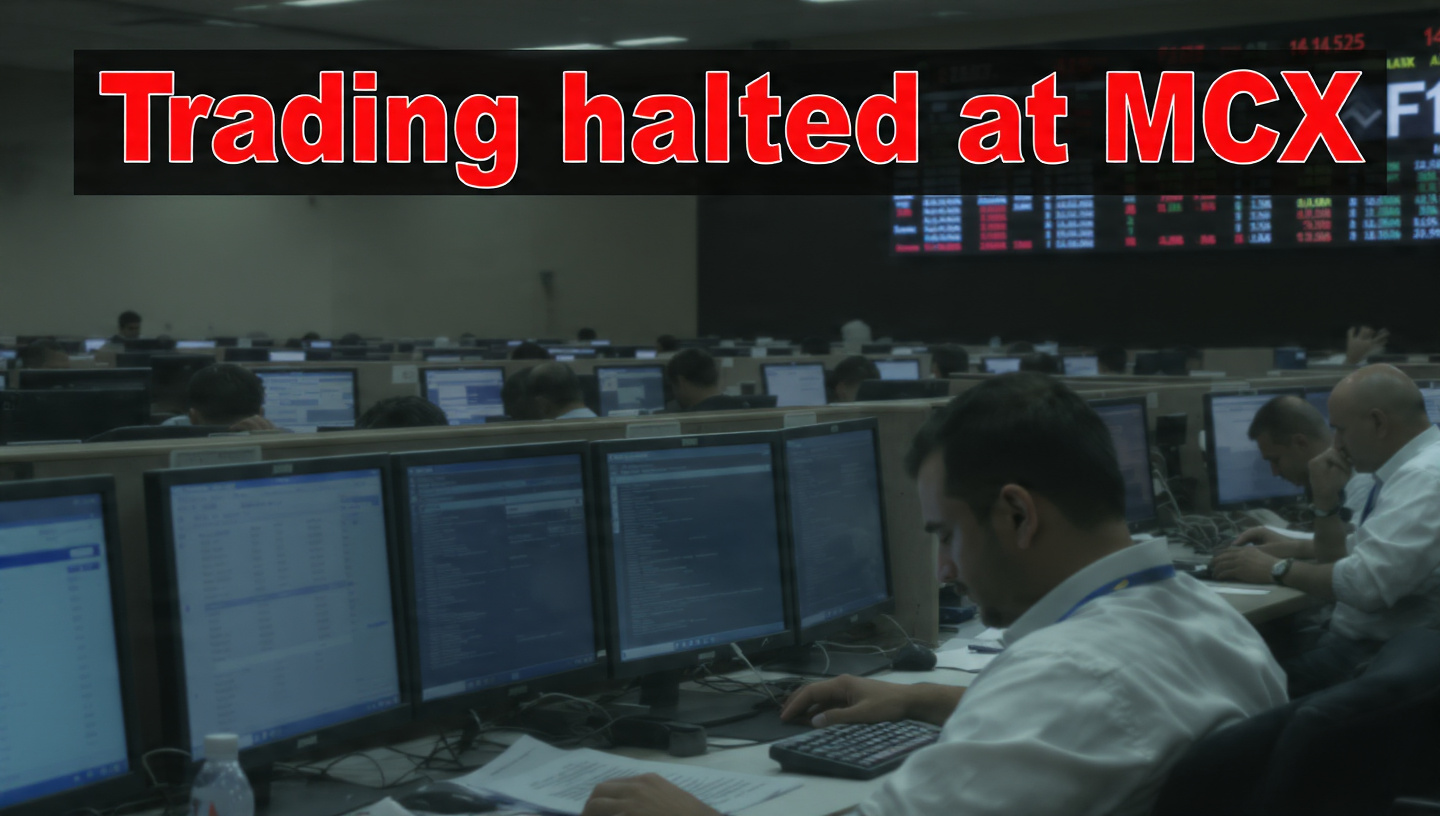When airlines delay beyond six hours, passengers are entitled to refunds or compensation. Railways refund fares when trains fail to operate within reasonable time. Consumer platforms allow cancellations when services break down. In telecommunications, prolonged outage requires penalty credits to users.
Why should stock exchanges, which handle far more sensitive and time-critical transactions, be the only essential service infrastructure allowed to fail without consequence?
Technical outages at India’s stock exchanges are no longer rare accidents; they are becoming disturbingly frequent. In the most recent disruption, MCX remained non-functional for hours, leaving investors and traders locked into open positions without the ability to hedge, exit, or even assess market movement. Significant losses followed. Yet, as always, the burden fell solely on the investors.
A brief statement followed: “We are looking into the matter.”
But for those who lost real money in real time, this offers little comfort and zero relief.
In every other essential service industry, system failure leads to accountability.
A Critical Blind Spot in Regulation
India classifies stock exchanges as Market Infrastructure Institutions—quasi-public utilities expected to operate with near-zero failure tolerance. Exchanges earn revenue from every trade: transaction charges, clearing fees, and data distribution. The government earns through STT, stamp duty, GST. Brokers collect brokerage.
Every participant in the system is compensated except the one who bears the economic risk: the investor.
When an exchange suffers an outage, the investor:
- Cannot exit positions when markets turn,
- Cannot hedge or protect against losses,
- Cannot evaluate risk because prices freeze or feeds desynchronize.
Yet there is no statutory framework requiring exchanges to compensate investors for system failure. SEBI’s oversight ensures procedural responsibility, but not financial accountability.
The current dispute resolution pathways—SCORES, complaints desks, ombudsman, arbitration—are largely ineffective here. They routinely dismiss outage-related claims stating that “losses cannot be quantified” or are “market linked.”
This reasoning ignores a crucial fact:
The loss is not due to the market. It is due to infrastructure failure.
The Global Standard Is Clear: System Failure = Liability
Major international exchanges operate explicit compensation regimes:
- CME Group (US) uses a clearly defined trade adjustment and reimbursement procedure.
- Tokyo Stock Exchange accepted responsibility after its 2020 outage and introduced a service failure liability standard.
- Hong Kong Stock Exchange maintains a structured compensation pool for systemic glitches.
- Euronext (EU) provides claims processes tied to operational disruption.
These markets recognize a simple principle: The burden of infrastructure failure should fall on the infrastructure operator—not on the end user.
What India Needs Now
This is not a call for blanket insurance of trading losses. The market remains a marketplace of risk. But system risk—arising from technological breakdown—must not be transferred to the investor.
A fair and modern solution must include:
- A mandatory Exchange Compensation Fund
A pooled reserve maintained by exchanges and clearing corporations to reimburse demonstrable losses from operational failure. - Automatic Refund of Charges
For the affected period, transaction fees, STT, clearing charges and GST should be automatically refunded. No application, no arbitration. - Service-Level Guarantees (SLG)
Exchanges must publish uptime standards and face penalties—much like telecom and aviation. - Freeze-Value Protection
In the event of a halt during derivative hours, open positions should be mark-to-fair-value rather than expose investors to volatility spike upon re-opening.
The Reform Imperative
India aspires to be a global financial center. Retail market participation has touched historic highs. Daily derivatives turnover now surpasses global benchmarks. Capital markets are increasingly where households save, invest, and plan futures.
But confidence is not built merely on optimism. It rests on fairness.
When the market goes against you, that is risk.
When the market system goes against you, that is injustice.
The investor community is not asking for indulgence. It is asking for recognition that:
- Infrastructure failure is not a trading loss.
- Accountability cannot be symbolic.
- Trust cannot be requested; it must be earned.
As India deepens its capital markets, the protection of the smallest participant must be treated as a priority—not an afterthought.
If trains can refund.
If airlines can compensate.
If telecoms can credit outage loss.
Exchanges—handling the nation’s financial backbone—must not be allowed to fail without responsibility.
It is time for SEBI, the Finance Ministry and exchange leadership to initiate a clear, binding Exchange Service Failure Compensation Framework because a market where the infrastructure is never accountable is a market where the investor is never truly safe.


